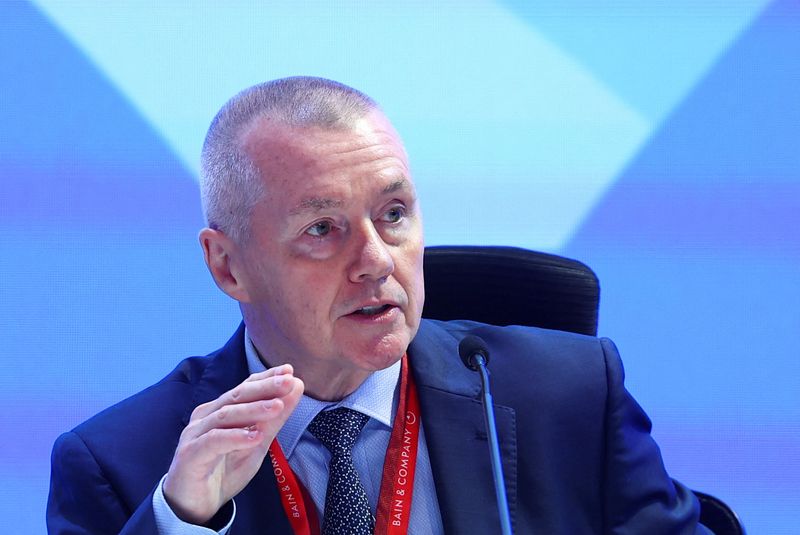By Jun Yuan Yong
SINGAPORE (Reuters) -The European Union’s buying of sustainable aviation fuel (SAF) from outside its region to meet carbon emission targets does not make much sense, said IATA International Air Transport Association Director-General Willie Walsh.
“The idea that you’re buying sustainable fuel and then transporting it to use in Europe isn’t the right way to do it, because you’re clearly increasing the carbon footprint of that fuel as a result of the transportation costs,” Walsh said at a media roundtable in Singapore on Wednesday.
SAF is considered a low-carbon replacement for traditional jet fuel.
Walsh said “mandating the use of a product that isn’t available doesn’t lead to any environmental benefit and what we are seeing in Europe is fuel companies who have the obligation to produce the fuel,” said Walsh, adding, “they’re increasing the cost of traditional jet fuel.”
“In anticipation of the costs of acquiring sustainable fuel, which based on our assessment, the cost that they’re charging is way in excess of the actual cost of the limited supplies of sustainable fuel,” he added, referring to some airlines’ strategy of SAF usage.
On the supply front, at least five SAF projects in Asia, outside of China, have started up or are earmarked to start production this year, targeting exports regionally and to Europe. A key exporter of the green fuel to the EU now includes Singapore.
(Reporting by Jun Yuan Yong; writing by Trixie Yap; Editing by Muralikumar Anantharaman and Sonali Paul)
